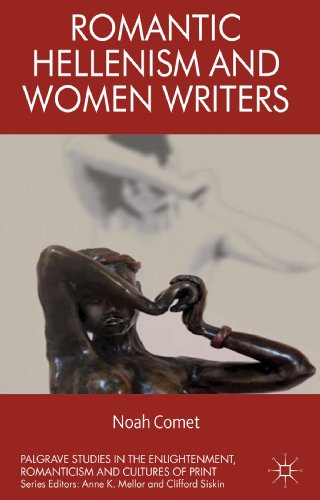Romantic Hellenism and Women Writers
It is instructive to remember that Elizabeth Barrett Browning, a gifted author with “the rare distinction of being trained in Greek”, could comment, “I look everywhere for grandmothers & see none.” The period of Romantic and, later, Victorian Hellenism, is traditionally seen as a masculine preserve, of “grandfathers”, and of husbands and brothers, raised on the classics in elite male environments. Comet argues differently: several notable women’s magazines and women poets utilised the Ancient Greek example a means of female cultural empowerment. He especially analyses the educational and popularising role The Court Magazine and the Lady’s Monthly Museum, women’s journals focusing on fashion, the decorative arts, women’s history and “just enough literature and mythology as ‘is absolutely requisite in the education of an accomplished female’.” Despite post-Waterloo Francophobic notions that wearing the Frenchified mode à la Greque was unpatriotic, high-waisted Grecian drapes and Sappho-Knots remained highly fashionable until the 1830s. Comet’s examination of the work of three notable women poets, Lucy Aikin, Felicia Hemans and Letitia Landon, shows how they collectively disavowed the legacy of Greek women as prostitutes and slaves while highlighting the “fortunate things women could do with Greek culture” in the present. This is a fascinating academic study providing ample detail and debate on women’s contribution to English classicism.










